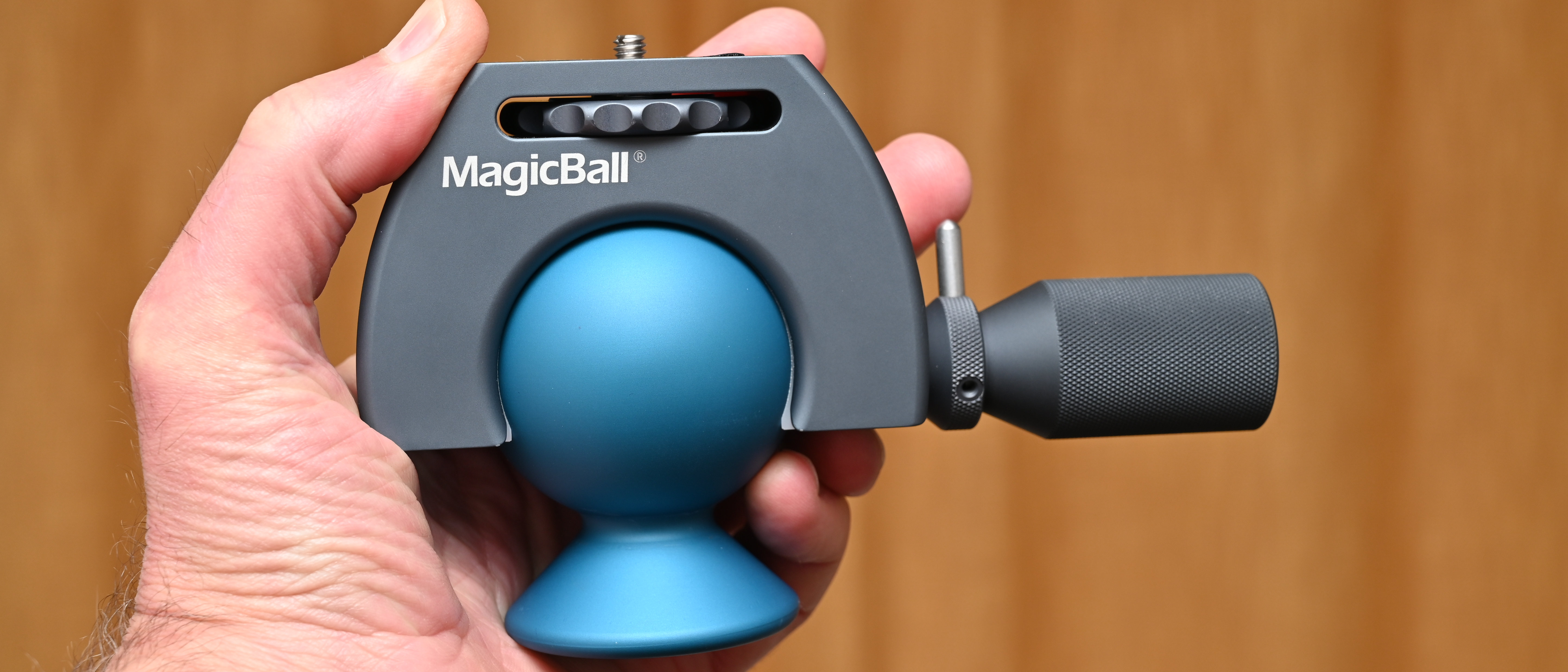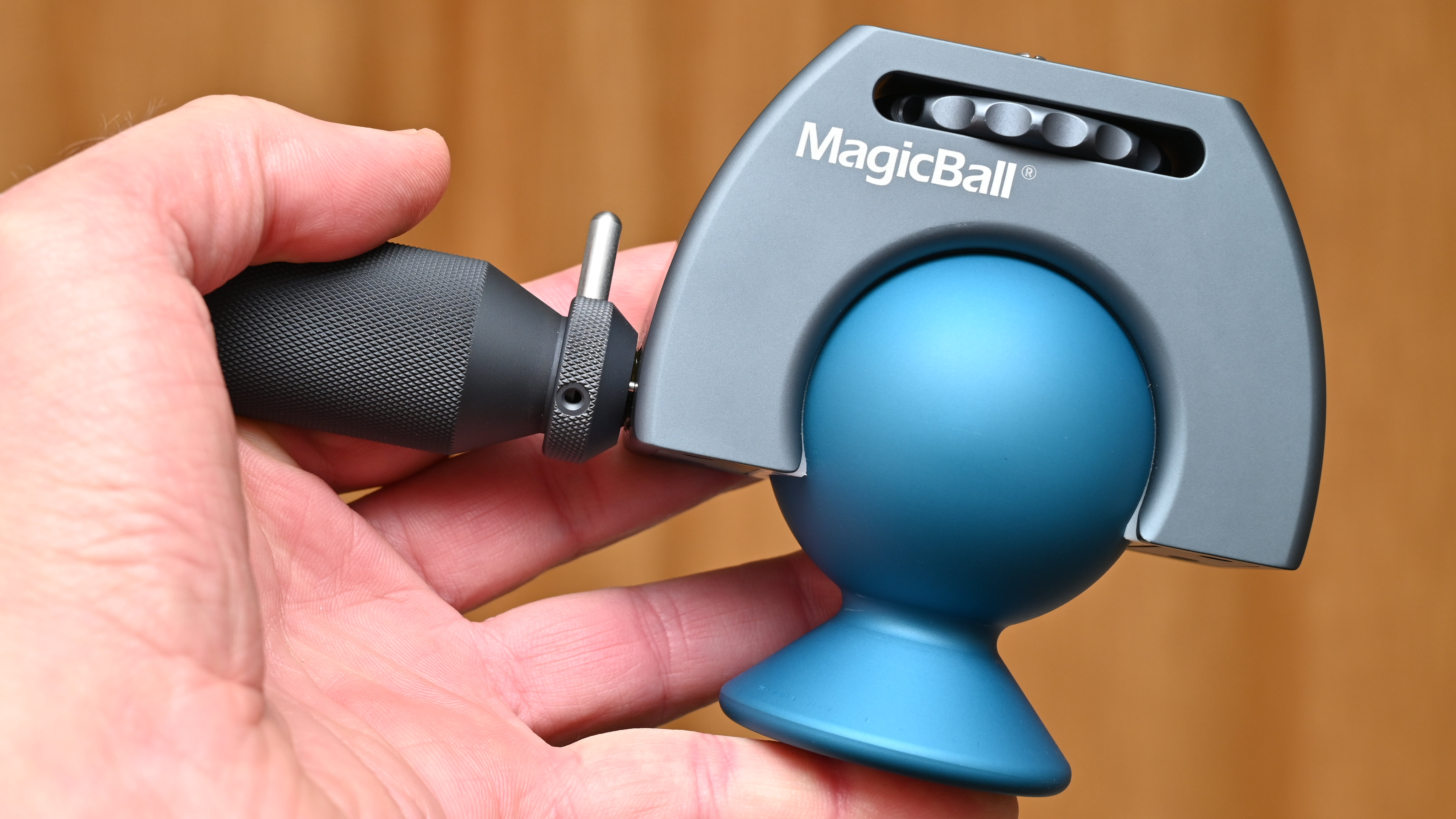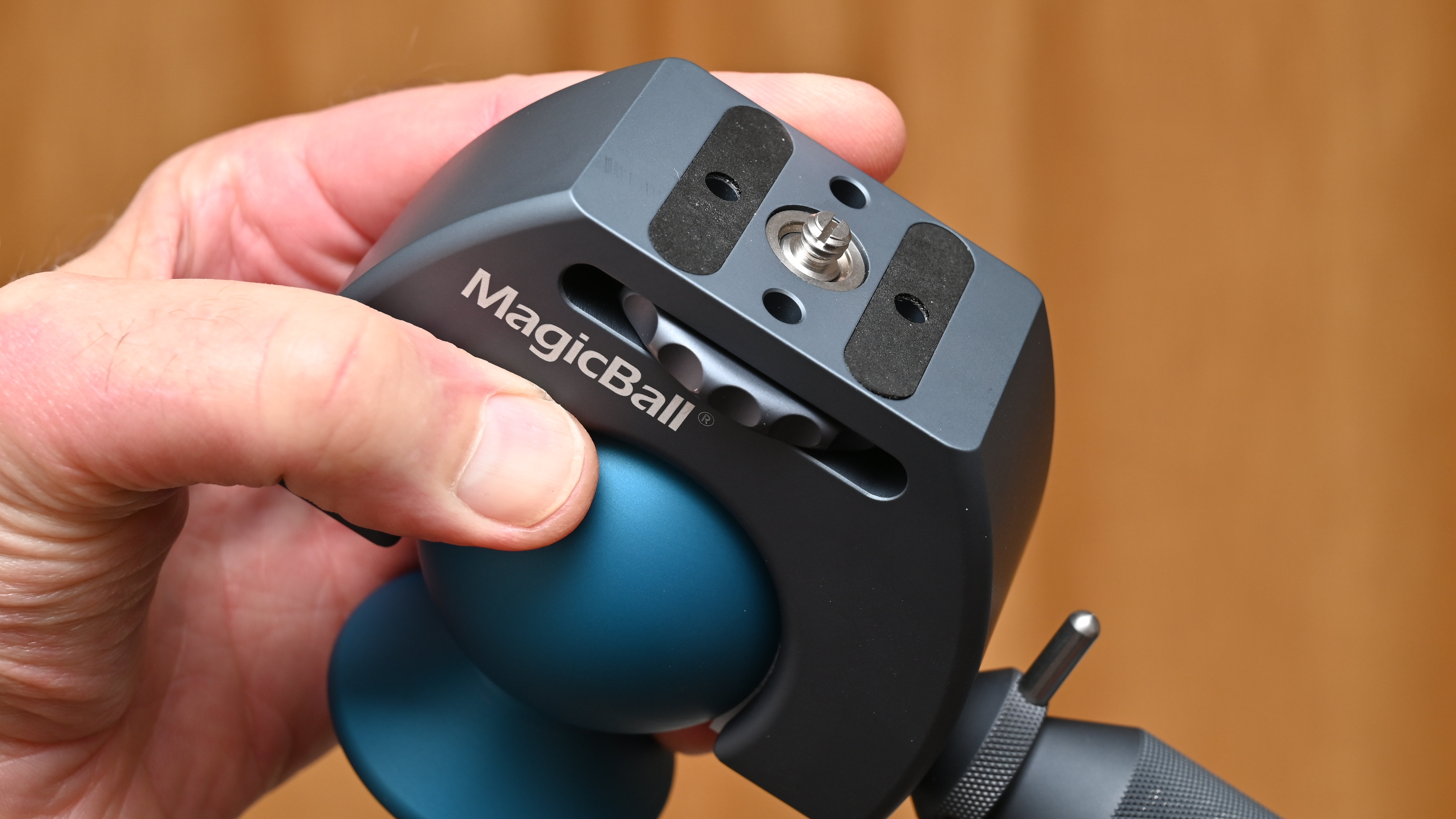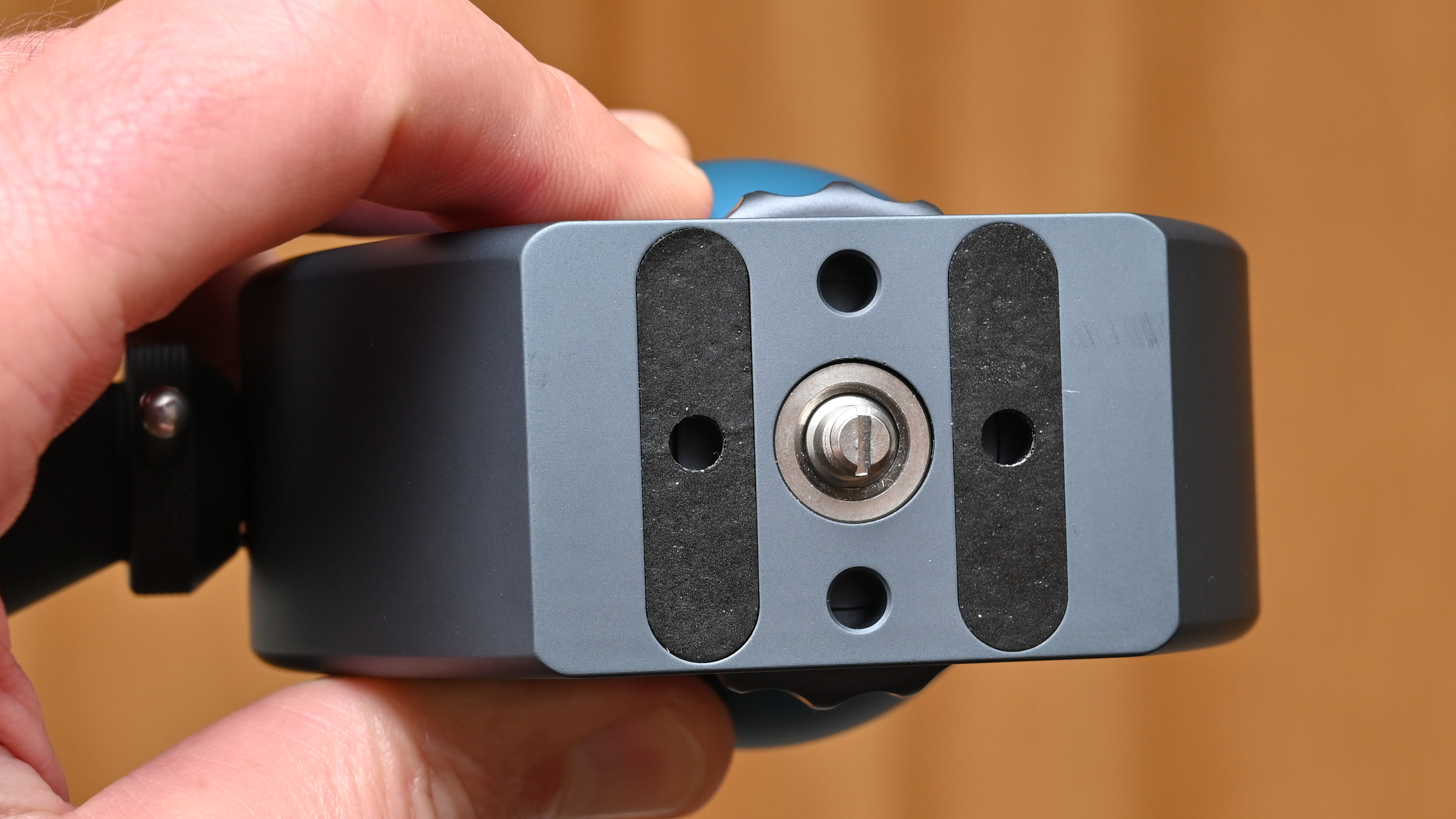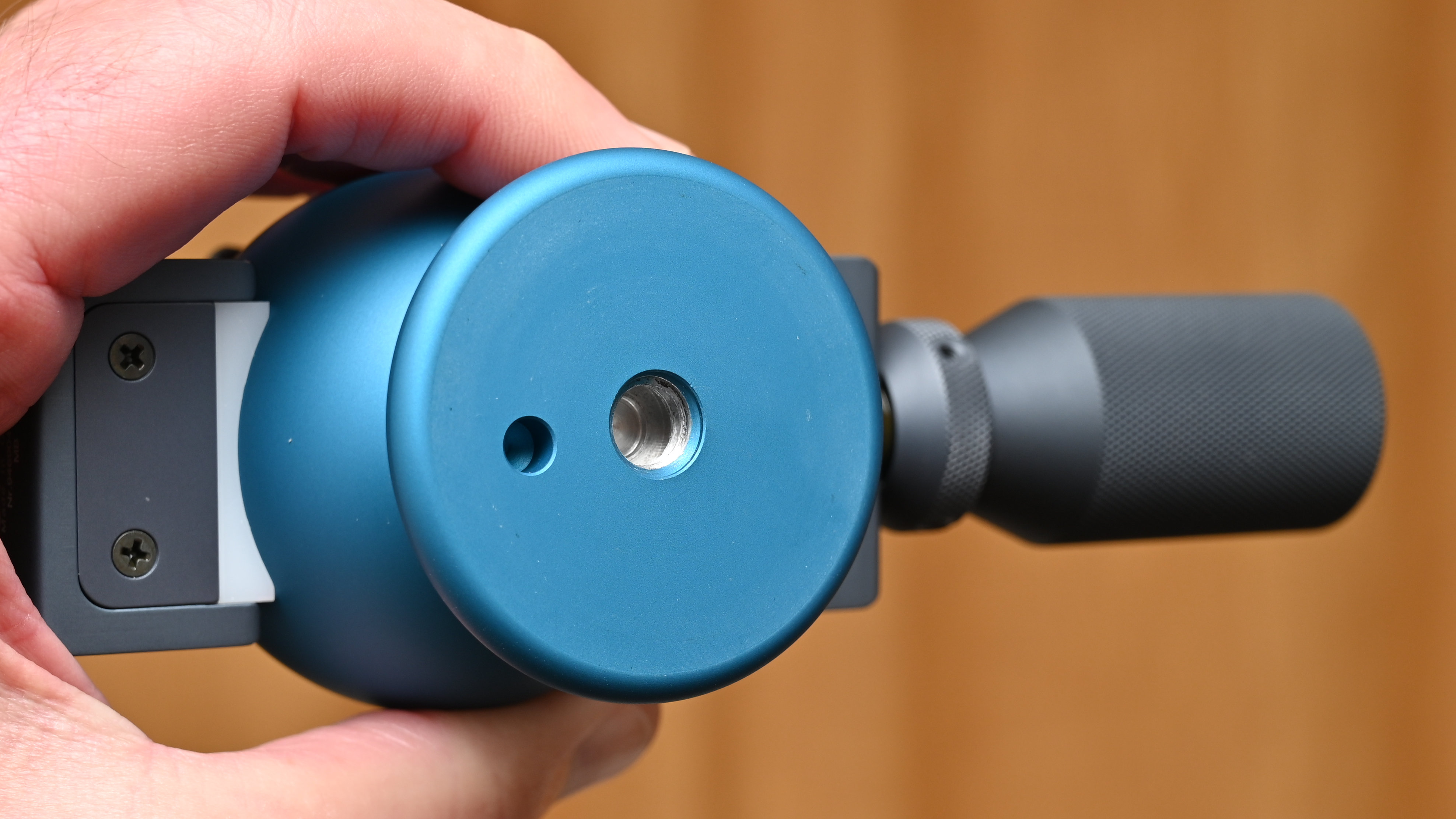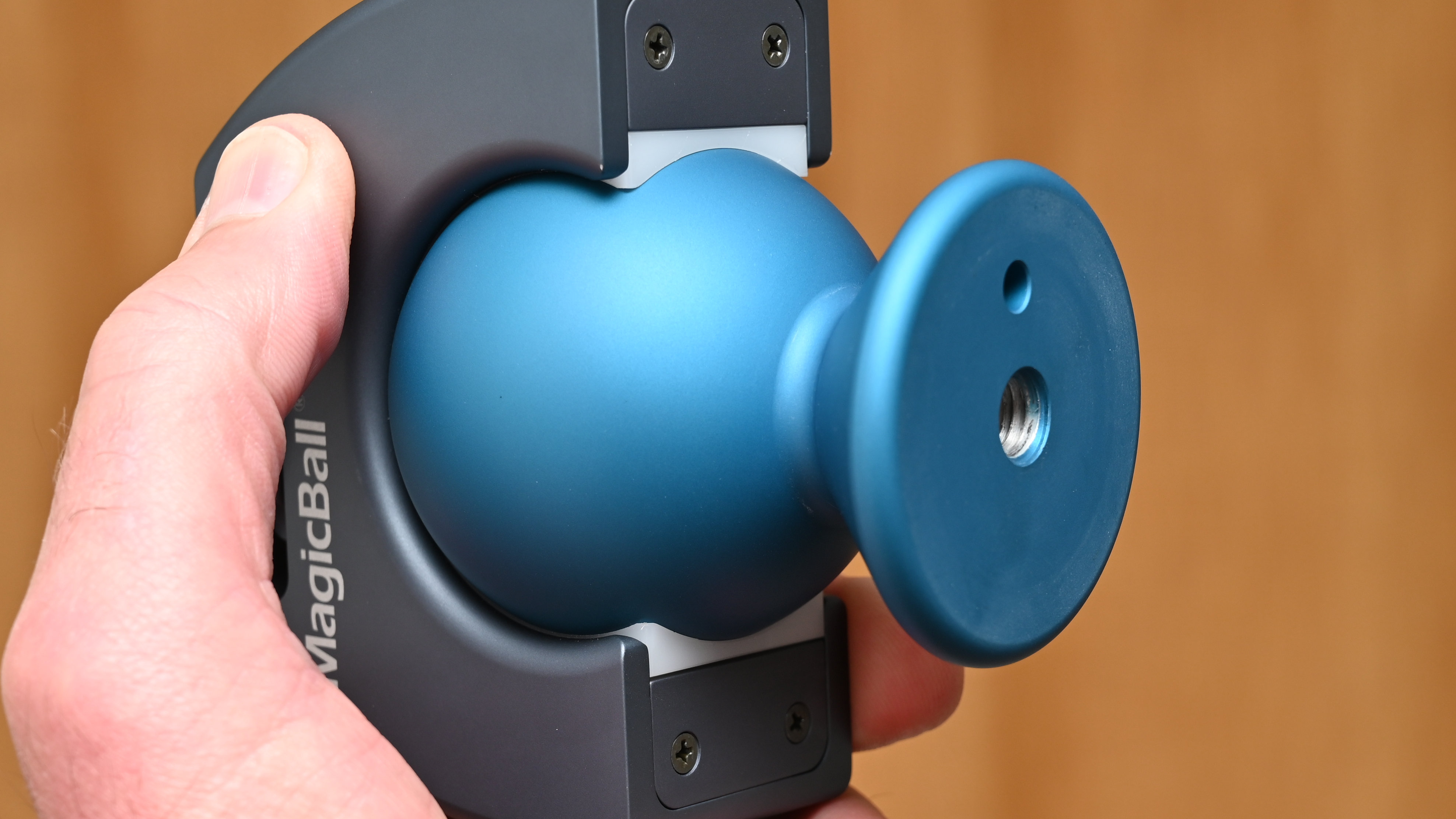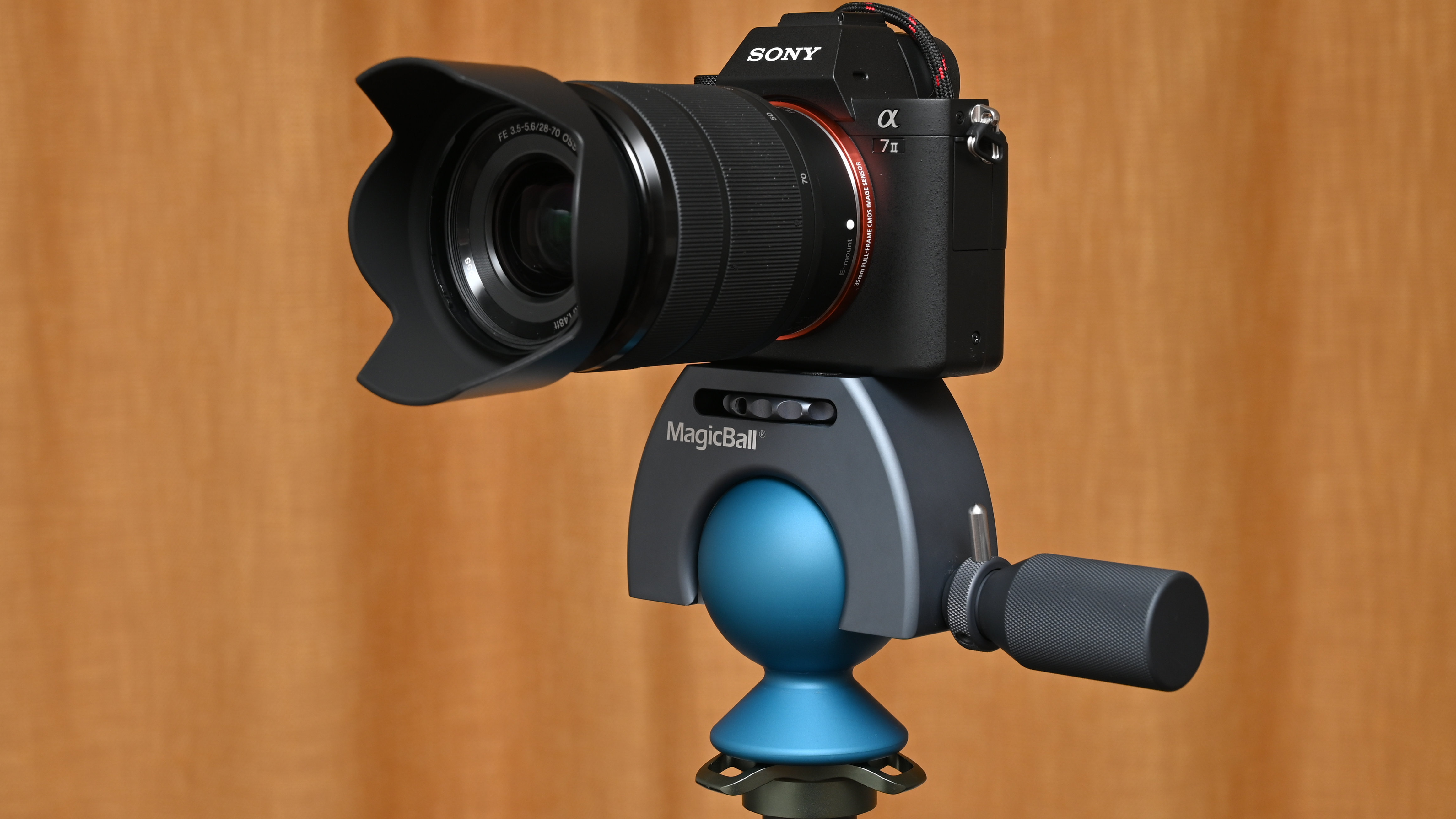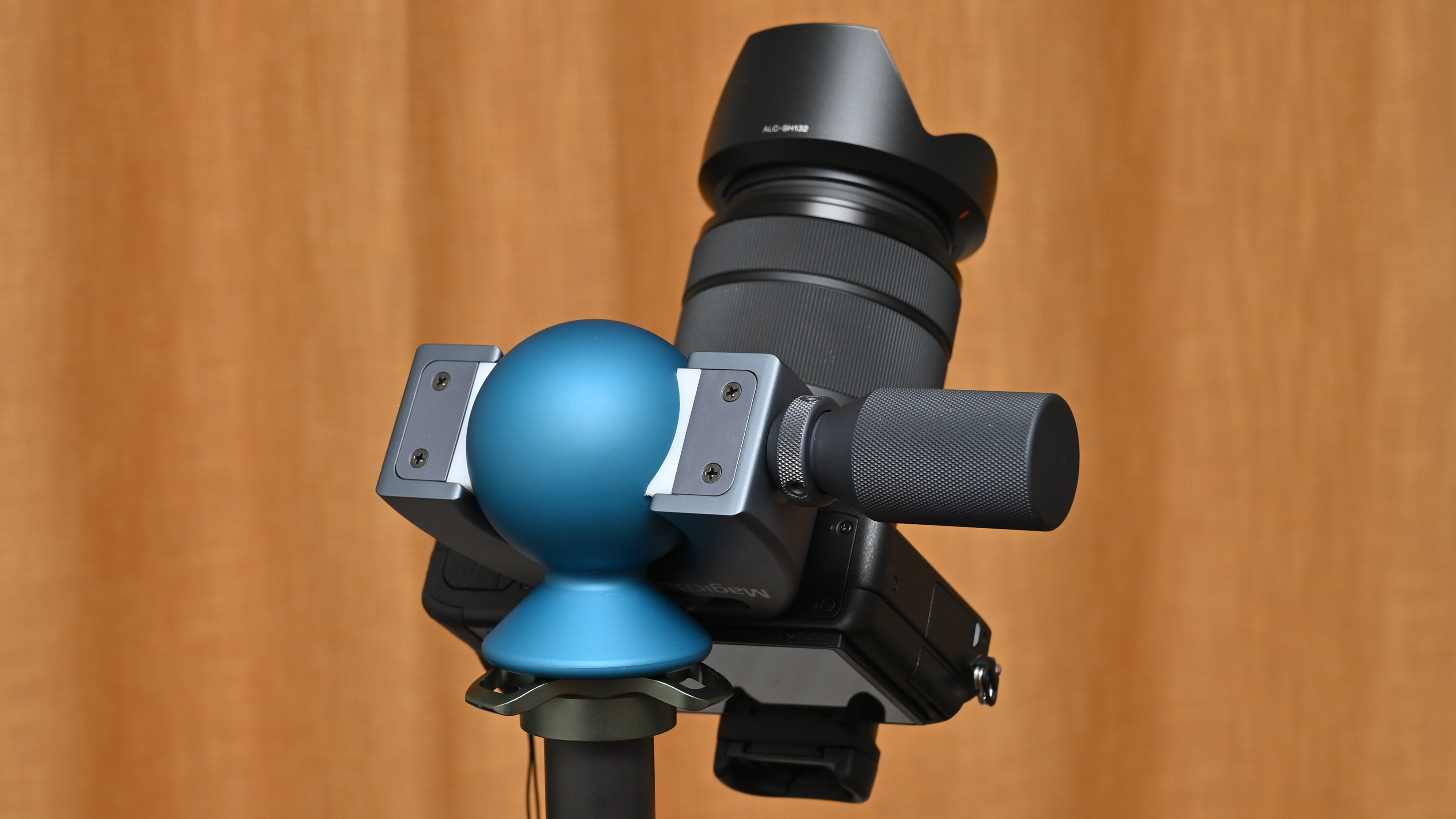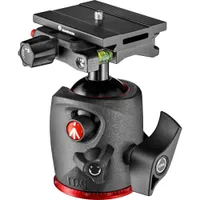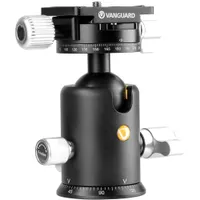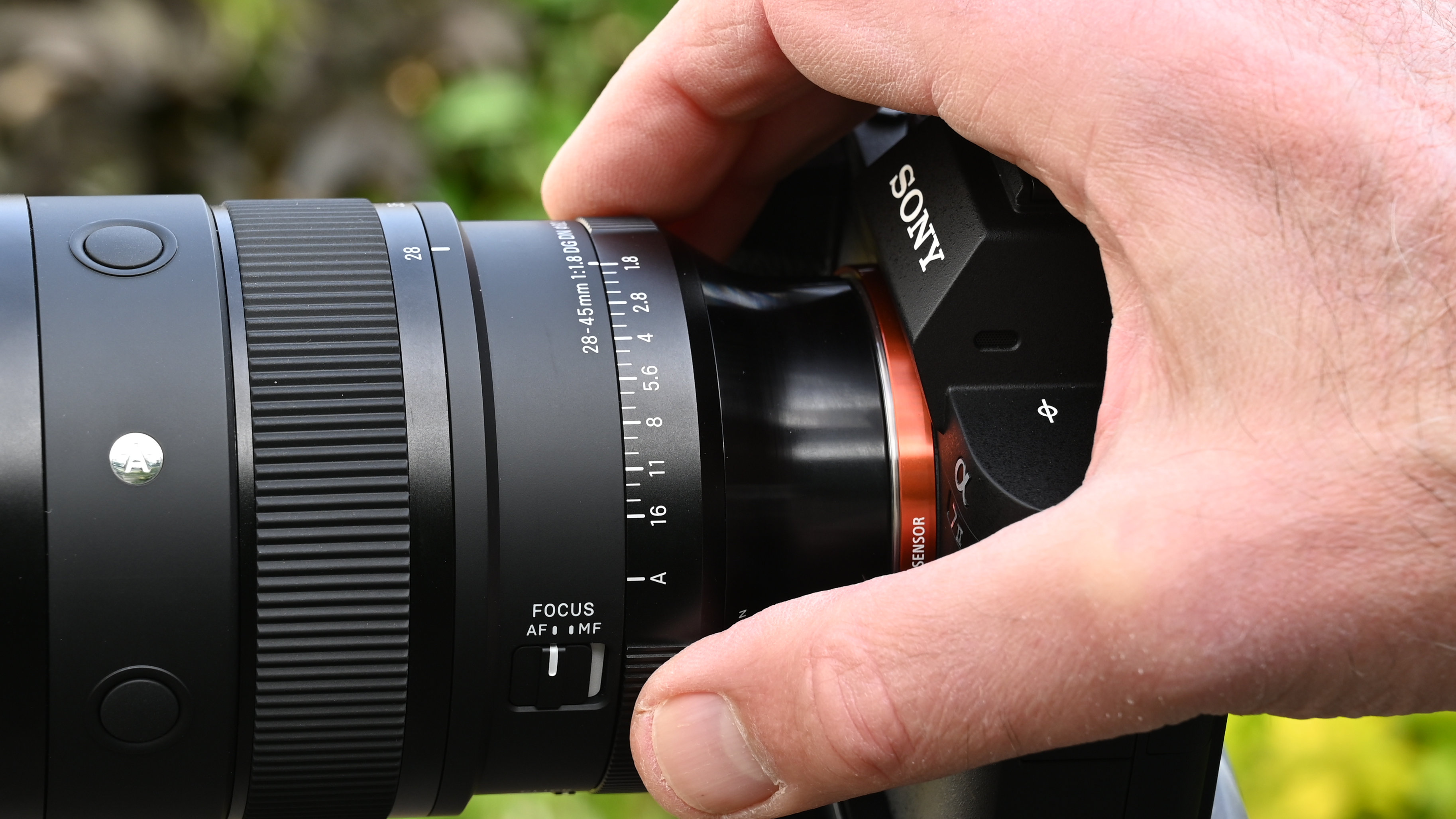Digital Camera World Verdict
I love the speed and ease of using a ball head and this Novoflex MagicBall is a lot quicker and simpler to use than most. I really like its unique design concept and that its so well-engineered. It’s super-sturdy and highly resistant to vibrations but lacks some of the features I sometimes find useful.
Pros
- +
Quick and easy operation
- +
Strong 10kg / 22lbs load rating
- +
Very resistant to sagging and vibration
Cons
- -
No quick-release plate
- -
No separate panning lock
- -
Expensive to buy
Why you can trust Digital Camera World
Novoflex has a history of making unusual photographic and cinematic accessories that stretches back over 70 years, predating most of us, myself included. Nowadays, the vast majority of camera kit is made in the Far East, often made in countries where manufacturing costs are relatively inexpensive (or downright cheap). By contrast, Novoflex kit is still made in Germany and is renowned for being precision-engineered. That certainly applies to this tripod head, which is immaculately crafted, as well as being somewhat unique in its design. It’s certainly like no other ball head that I’ve ever used. Even so, it’s not exactly new, being a Design Award Winner all the way back in 1998.
Novoflex MagicBall: Specifications
| Material | Unspecified |
| Maximum load | 10kg / 22lbs |
| Base diameter | 50mm |
| Plate type | No quick-release plate |
| Pan lock | No separate pan lock |
| Friction control | Yes |
| Bubble/spirit levels | None |
| Width/height | 160x105mm / 6.3x4.13" |
| Weight | 920g / 2.0lbs |
Novoflex MagicBall: Price
Buy a high-spec German Mercedes or Porsche car and you expect to pay a premium compared with, say, a Chinese-made MG. Similar rules apply to this tripod head. The MagicBall that I’m reviewing here is the biggest and strongest in the range and sells for around $429/£279. There’s also an intermediate MagicBall 50 at $354/£240 and the smallest MagicBall Mini still costs around $300/£177.
For the sake of comparison, the Italian-made Manfrotto XPRO Ball Head is one of my favorites, has a 15kg / 33.1lbs maximum load rating, and is much more affordable (especially in the USA) at around $199/£169. There’s also the extremely versatile Vanguard VEO BH-250S with a 25kg / 55lbs load rating at $140/£139.
Novoflex MagicBall: Design & Handling
Thinking ball heads, I immediately visualize a head that wraps around a ball that has a protruding section at the top, on which is mounted a camera platform. The MagicBall turns the idea on its head, so to speak. The base section is a one-piece ball and tripod-mounting base, engineered from a single piece of metal. The ball itself therefore stays fixed in place while you make any adjustments.
The moving part of the head is a U-shaped bracket that wraps around the ball. Again, this is crafted from metal and feels extremely solid and robust. Loosen the main locking arm, which is made from grippy knurled and anodized metal and the U-shaped section rotates on the ball, enabling a full 360-degrees of lateral swivel and up to 120 degrees of tilt. The latter is much more generous than in any other ball head I can think of.
Whereas the largest MagicBall that I’m reviewing has a maximum load rating of 10kg / 22lbs, the intermediate MagicBall 50 has a payload of 7kg / 15.4lbs, and it’s a modest 5kg / 11lbs for the smallest MagicBall Mini. The larger two models have an additional, adjustable friction damper, whereas the smallest omits this feature.
As I’d expect, the head has a 3/8” mounting head for attaching it to a set of tripod legs or other support, and comes complete with a 3/8” to ¼” screw-in adapter. More surprisingly, the same applies to the fastener on the camera platform. In regular orientation, it fits to the standard ¼” tripod socket of pretty much any camera. However, it has a screwdriver slot at the top, so you can unscrew it, reverse it and refit if as a 3/8” stud.
The best camera deals, reviews, product advice, and unmissable photography news, direct to your inbox!
What’s also surprising, and not in a good way, is that the head has a knurled ring for connecting the camera direct to the mounting screw, rather than featuring a quick-release plate. I found it comparatively time-consuming and fiddly. To make matters worse, I occasionally found that, when removing the camera, the stud unscrewed from the head and I’d have to subsequently unscrew it from the camera and refit it to the head. On the plus side, four holes are featured on the camera platform of the head, for accommodating video pins to give additional anti-twist security. And if I really feel the need for a quick-release plate, the Novoflex MiniConnect and Q=Base II are available as optional extras, the latter having Arca-Swiss compatibility.
Novoflex MagicBall: Performance
I was really impressed by the sturdiness of the MagicBall. Minimal twisting of the locking grip enables super-sturdy clamping or free movement for adjustment. The ball and clamping bushes require no lubrication but motion feels super-smooth. One thing I hate about most ball heads is that, for fine and precise alignment, there’s often a slight sag after locking the head and releasing my hold on the camera. The MagicBall does really well to pretty much eliminate sag altogether.
Resistance to vibration and any unwanted flexing is excellent. Getting back to the knurled thumbwheel for attaching a camera via its threaded tripod socket, I found I could lock even large camera and lens combinations nice and firmly. For the likes of heavy telephoto lenses on tripod mounting collars, Novoflex suggests tightening the thumbwheel as much as you can, and then twisting the attached lens through an extra quarter of a turn to make sure the fitment is really solid. In this sort of scenario, the adjustable friction damper also works well.
The only thing I really missed, compared with most current ball heads for tripods, was a separate panning lock/release mechanism. For video, panoramas and even for just following action, I find it useful to be able to pan while keeping tilt and swivel locked in place. Another thing to be wary of is that, looking at the way the locking grip is connected, you might be fooled into thinking that you don’t need to keep hold of the camera when loosening it. That’s certainly not the case. Holding the locking grip stops the camera falling to one side or the other, but it can still fall forwards or backwards.
All things considered, this ball head has a quirky design that works really well in practice. An enormous range of adjustment can be carried out quickly and easily, and it offers super-sturdy support.
Novoflex MagicBall: Verdict
I’m not impressed with anything that’s designed to be different, just for the sake of it. As they say, ‘if it ain’t broke, don’t fix it’. However, the Novoflex MagicBall really won me over. It’s a genuinely innovative and inspired design of ball head that works superbly well. I love that it’s so quick and easy to use (the lack of an included quick-release system aside), gives such an effortless and extensive range of movement and locks off really tight to minimize any sag, vibration or flexing. Sure, it’s pricey to buy but it’s beautifully engineered and does its job exceptionally well.
| Features | It’s mostly excellent but lacks an included quick-release system, or panning lock. | ★★★★ |
| Design | It literally turns ball head design on its head, with an imaginative and innovative design. | ★★★★★ |
| Performance | It locks in place with superb resistance to any sagging, vibration or flexing. | ★★★★★ |
| Value | It’s not the best value in most world region and is particularly pricey in the USA. | ★★★★ |
Should you buy the Novoflex MagicBall?
✅ Buy this...
- You want a ball head that’s quick and easy to adjust and offers super-solid support.
- You appreciate products based on design concepts that dare to ‘think different’ to excellent effect.
🚫 Don't buy this...
- You expect to get a quick-release system for quickly and easily attaching and removing cameras and lenses from your tripod or other support.
- You’d prefer a ball head with a panning lock, more ideal for tracking action, shooting video and capturing panoramic images.
Alternatives
The Manfrotto XPRO Ball Head is one of my personal favorite ball heads. It’s really well engineered and, like the MagicBall, suffers from minimal sag after clamping. It’s available in two options, with Manfrotto’s usual quick-release plate or an Arca-Swiss compatible plate.
The Vanguard VEO BH-250S is a highly sophisticated ball head with a dual-axis panning mechanism, the upper of which enables level panning even if the tripod legs aren’t leveled. It has a very weighty 25kg / 55lbs maximum load rating and is excellent value.
Matthew Richards is a photographer and journalist who has spent years using and reviewing all manner of photo gear. He is Digital Camera World's principal lens reviewer – and has tested more primes and zooms than most people have had hot dinners!
His expertise with equipment doesn’t end there, though. He is also an encyclopedia when it comes to all manner of cameras, camera holsters and bags, flashguns, tripods and heads, printers, papers and inks, and just about anything imaging-related.
In an earlier life he was a broadcast engineer at the BBC, as well as a former editor of PC Guide.
